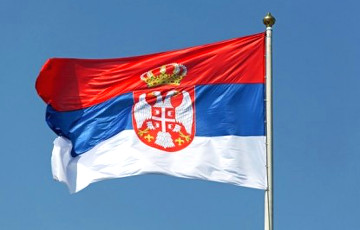Serbia Readies Unpleasant ‘Surprise’ For Putin
6- 11.12.2023, 15:22
- 10,700

Belgrade is ready to buy Azerbaijani gas instead of Russian.
Serbia and Bulgaria have completed the construction of a gas pipeline with a capacity of 1.8 billion cubic meters per year. This volume of pumping is capable of satisfying Serbia’s demand by 60%, writes The Moscow Times.
As a result, the country, which is almost entirely dependent on supplies from Russia, will be able to purchase gas coming through a pipeline from Azerbaijan or from the Greek LNG terminal in Alexandroupolis.
“With this interconnector, we provide ourselves with an alternative supply of gas — in addition to the Russian one,” said Serbian Energy Minister Dubravka Đedović.
However, it will not be possible to quickly get rid of Russian gas, since in 2022 Belgrade signed a new long-term agreement with Russia. In November this year, Serbia agreed with Azerbaijan to purchase 400 million cubic meters per year, starting in 2024.
The opening ceremony of the pipeline in Nis, Serbia, was attended by the heads of states of Serbia Aleksandar Vucic, of Bulgaria Rumen Radev, and of Azerbaijan Ilham Aliyev. Azerbaijan will be able to achieve the goal of doubling supplies to Europe by 2027, Aliyev said. Last year, as EU countries sought alternatives to Russian gas at the height of the energy crisis, Baku agreed to increase pumping volumes to 20 billion cubic meters within five years.
Azerbaijan began selling gas to Europe only in 2020. The following year, export volumes amounted to 8 billion cubic meters. In 2023 it will reach 12 billion; this suggests that the country is “confidently moving towards the goal,” Aliyev said.
Azerbaijani gas, albeit incompletely, replaces Russian gas in Europe. Before the war in Ukraine, in 2021, Gazprom provided 40% of European imports, or just over 150 billion cubic meters. Now Russia's share, including increased LNG supplies, has fallen to 12%, according to Eurostat. That is, Russia supplies the EU with less than 50 billion cubic meters of gas.
The pipeline between Serbia and Bulgaria will also give the latter access to gas from Western Europe and the Adriatic Sea. The EU supported the project with grants worth €49.6 million and loans worth €25 million.










